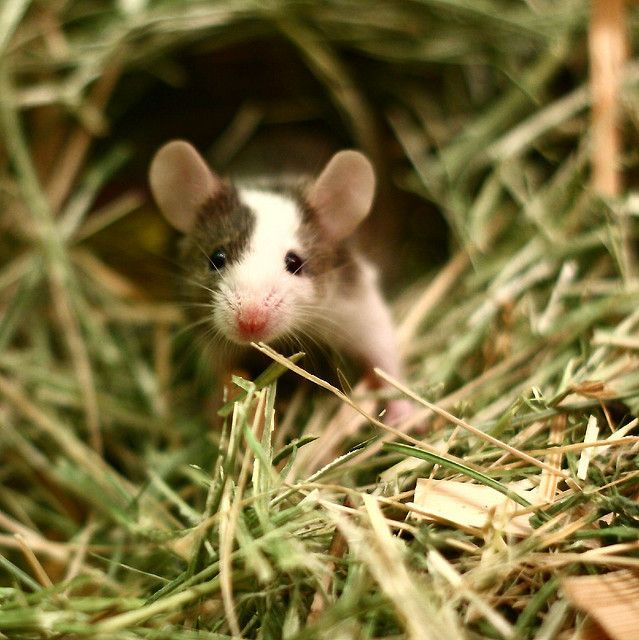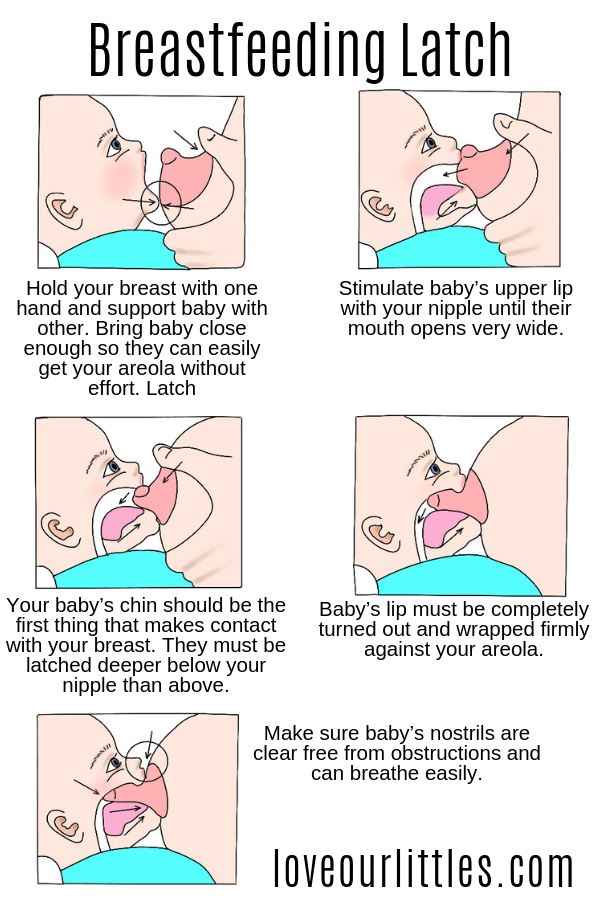Should i wake baby to feed during day
Sleep and Your Newborn (for Parents)
Newborns don't yet have a sense of day and night. They sleep around the clock, and because their tiny stomachs don't hold enough breast milk or formula to keep them satisfied for long, they wake often to eat — no matter what time of day or night it is.
How Long Will My Newborn Sleep?
Newborns should get 14–17 hours of sleep over a 24-hour period, says the National Sleep Foundation. Some newborns may sleep up to 18–19 hours a day.
Newborns wake every couple of hours to eat. Breastfed babies feed often, about every 2–3 hours. Bottle-fed babies tend to feed less often, about every 3–4 hours.
Newborns who sleep for longer stretches should be awakened to feed. Wake your baby every 3–4 hours to eat until he or she shows good weight gain, which usually happens within the first couple of weeks. After that, it's OK to let your baby sleep for longer periods of time at night.
The first months of a baby's life can be the hardest for parents, who might get up many times at night to tend to the baby. Each baby has a different sleep pattern. Some start to sleep "through the night" (for 5–6 hours at a time) by 2–3 months of age, but some don't.
How Should Babies Sleep?
During the first weeks of a baby's life, some parents choose to room-share. Room-sharing is when you place your baby's crib, portable crib, play yard, or bassinet in your own bedroom instead of in a separate nursery. This keeps baby nearby and helps with feeding, comforting, and monitoring at night. The American Academy of Pediatrics (AAP) recommends room-sharing without bed-sharing.
While room-sharing is safe, putting your infant to sleep in bed with you is not. Bed-sharing increases the risk of SIDS (sudden infant death syndrome) and other sleep-related deaths.
Follow these recommendations for a safe sleep environment for your little one:
- Always place your baby on their back to sleep, not on the stomach or side. The rate of SIDS has gone way down since the AAP began recommending this in 1992.
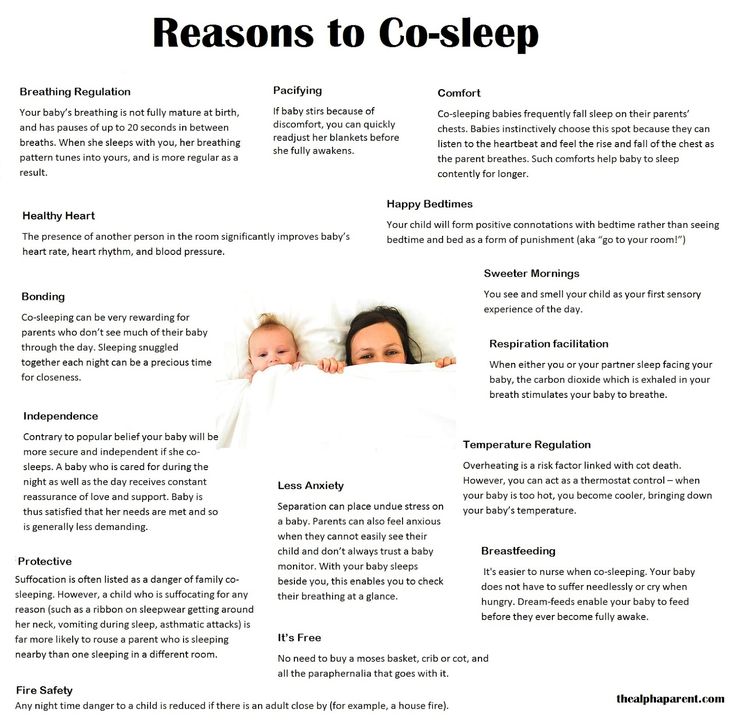
- Use a firm, flat sleep surface. Cover the mattress with a sheet that fits snugly.
- Do not put anything else in the crib or bassinet. Keep plush toys, pillows, blankets, unfitted sheets, quilts, comforters, sheepskins, and bumper pads out of your baby's sleep area.
- To avoid overheating, dress your baby for the room temperature and don't overbundle. Don't cover your baby's head while they're sleeping. Watch for signs of overheating, such as sweating or feeling hot to the touch.
- Keep your baby away from smokers. Secondhand smoke increases the risk of SIDS.
- Offer a pacifier to your baby at sleep time, but don’t force it. If the pacifier falls out during sleep, you don’t have to replace it. If you're breastfeeding, wait until breastfeeding is firmly established.
- Watch out for other hazards, such as items with cords, ties, or ribbons that can wrap around a baby's neck, and objects with any kind of sharp edge or corner. Look around for things that your baby can touch from a seated or standing position in the crib.
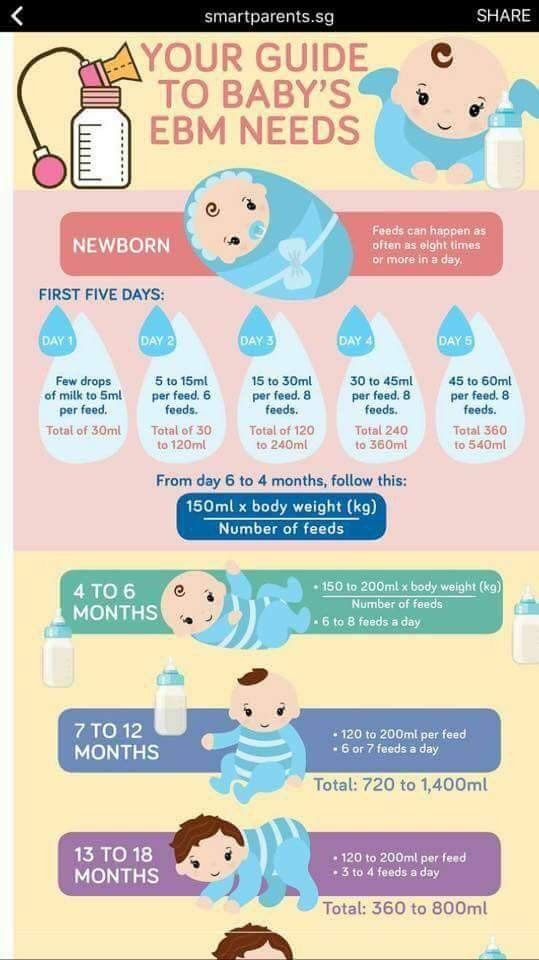 Hanging mobiles, wall hangings, pictures, draperies, and window blind cords could be harmful if they are within a baby's reach.
Hanging mobiles, wall hangings, pictures, draperies, and window blind cords could be harmful if they are within a baby's reach. - Don’t let your baby fall asleep on a product that isn’t specifically designed for sleeping babies, such as a sitting device (like a car seat), a feeding pillow (like the Boppy pillow), or an infant lounger (like the Dock-a-Tot, Podster, and Bummzie).
- Don’t use products or devices that claim to lower the risk of SIDS, such as sleep positioners (like wedges or incliners) or monitors that can detect a baby’s heart rate and breathing pattern. No known products can actually do this.
- Don’t use weighted blankets, sleepers, or swaddles on or around your baby.
- Make sure that all sleep surfaces and products you use to help your baby sleep have been approved by the U.S. Consumer Product Safety Commission (CPSC) and meet federal safety standards.
Helping Your Newborn Sleep
Newborns follow their own schedule. Over the next couple of weeks to months, you and your baby will begin to settle into a routine.
Over the next couple of weeks to months, you and your baby will begin to settle into a routine.
It may take a few weeks for your baby's brain to know the difference between night and day. Unfortunately, there are no tricks to speed this up, but it helps to keep things quiet and calm during middle-of-the-night feedings and diaper changes. Try to keep the lights low and resist the urge to play with or talk to your baby. This will send the message that nighttime is for sleeping. If possible, let your baby fall asleep in the crib at night so your little one learns that it's the place for sleep.
Don't try to keep your baby up during the day in the hopes that your little one will sleep better at night. Overly tired infants often have more trouble sleeping at night than those who've had enough sleep during the day.
If your newborn is fussy it's OK to rock, cuddle, and sing as your baby settles down. Swaddling (wrapping the baby in a light blanket) can also help to soothe a crying baby.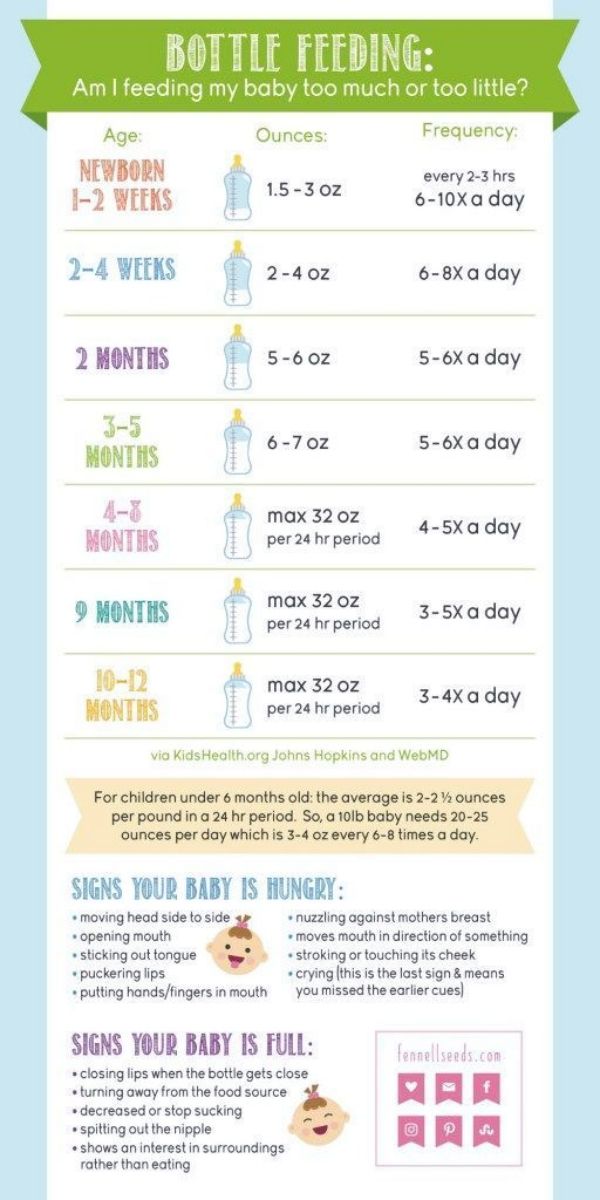 If you swaddle your baby and they start trying to roll over, that is a sign that you can stop swaddling. For the first months of your baby's life, "spoiling" is definitely not a problem. In fact, newborns who are held or carried during the day tend to have less colic and fussiness.
If you swaddle your baby and they start trying to roll over, that is a sign that you can stop swaddling. For the first months of your baby's life, "spoiling" is definitely not a problem. In fact, newborns who are held or carried during the day tend to have less colic and fussiness.
When Should I Call the Doctor?
While most parents can expect their newborn to sleep or catnap a lot during the day, the range of what is normal is quite wide. If you have questions about your baby's sleep, talk with your doctor.
Should I wake my baby for feedings?
As commonly passed around pieces of advice go, “never wake a sleeping baby” is about as common as it gets, but is it always true? New parents are also told that newborns need to feed regularly – in the first few weeks of life, some healthcare providers recommend feeding as often as once every 2 to 3 hours. On the other hand, other common advice recommends feeding on-demand. But if your newborn is sleeping too much to start demanding to eat very often, where does that leave you?
When to wake a sleeping babyIt’s true that, like all rules, “never wake a sleeping baby” has exceptions, and the main exception is the first two weeks or so of life. Newborns often lose a little weight soon after they’re born, and in those first few weeks, their bodies are busy trying to gain that lost weight back, so they can start growing at top speed.
Newborns often lose a little weight soon after they’re born, and in those first few weeks, their bodies are busy trying to gain that lost weight back, so they can start growing at top speed.
- Early on: Unfortunately, babies’ sleep cycles aren’t always aligned with their growth needs yet. In the early weeks, if babies are sleeping through feeding times, there’s a good chance their healthcare providers will recommend waking them to feed, at least until they’ve gotten back to their birth weight. Some healthcare providers recommend only waking babies to feed during the day, and allowing them to feed on-demand at night, especially after the first few days or weeks of life. Others recommend waking babies to feed on a regular schedule, around the clock, if they’re not waking and demanding food on their own. It really depends on how much the individual baby weighed at birth, how much weight a child has lost, and any specific health concerns that might affect him.
- If he is losing weight: Babies are generally great self-regulators who know better than any doctor how much food and sleep they need, but there are times when their instincts are off and, even after those first few weeks, they might not be getting all the nutrients they need.
 If a healthcare provider is concerned that a baby isn’t growing at a healthy rate, he or she might recommend a feeding schedule to bring that weight and growth-rate up, even if it means interrupting sleep to do it.
If a healthcare provider is concerned that a baby isn’t growing at a healthy rate, he or she might recommend a feeding schedule to bring that weight and growth-rate up, even if it means interrupting sleep to do it. - During illness: Another time when it might be important to wake a sleeping baby to feed, even after those first few weeks, is during an illness. Illnesses can increase the need for fluids, and while sleep is extremely important for healing, so is making sure he isn’t getting dehydrated, and that he is getting any medication he might have been prescribed on schedule.
- Sleep scheduling: Parents who are sleep training or feel strongly about having a strict sleep schedule might also choose to wake their children if they start napping at an unusual time of day, or fall asleep too soon before bedtime. In these cases, though, it’s important to note that babies who usually follow strict schedules, but start drifting off early, might be fighting an illness, or might be experiencing a growth spurt.

For many families of babies and toddlers, sleep can be hard enough to come by that cutting any of it short can feel unthinkable, but there are a few instances where a little early-waking can lead to even more healthy sleep later.
Sources
-
Neville M. Blampied, Jacqueline M.T. Henderson, Karyn G. France, Joseph L. Owens, “Sleeping Through the Night: The Consolidation of Self-regulated Sleep Across the First Year of Life.” Pediatrics. American Academy of Pediatrics , October 2010. Web.
-
Elizabeth LaFleur. “Should I wake my newborn for feedings?” Mayo Clinic. Mayo Clinic, April 28 2015. Web.
-
Delyth Purchase. “Sleepless nights: New research finds babies should wake at night.” Swansea University. Swansea University, July 6 2015. Web.
-
“Do I need to wake my baby for feeds?” Australian Breastfeeding Association. Australian Breastfeeding Association, August 2012. Web.
-
“Newborn-Sleep Patterns.
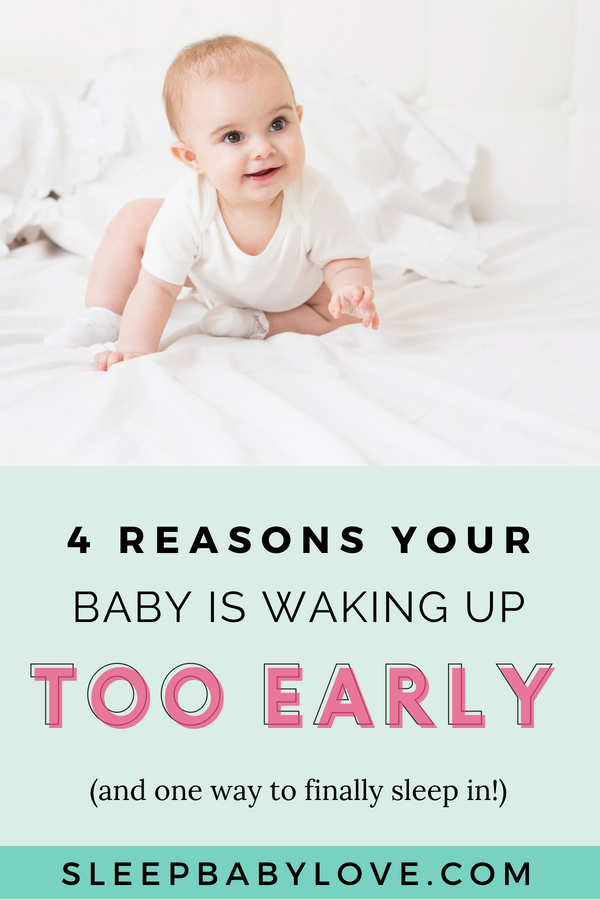 ” Stanford Children’s. Stanford Children’s Health, 2016. Web.
” Stanford Children’s. Stanford Children’s Health, 2016. Web.
How to wake up a baby for feeding and whether it is necessary to wake up a baby in the afternoon
05/29/2020
95
For any parent, the question of whether to wake up the baby is not easy. On the one hand, there are fears that a child who has been sleeping for a long time will not be able to fall asleep later, and on the other hand, how to raise such an angel who has been put to bed for so long...
so that his sleep is not affected.
Let's start with the smallest children. You've probably heard the phrase "never wake a sleeping baby." But it is not always fair. Some newborn babies wake up on their own for feedings, while others need to be awakened. Whether or not you need to wake your baby depends on their age, weight, and overall health.
The American Academy of Pediatrics recommends waking your baby for feedings if he sleeps more than 4 hours in the first two weeks of life.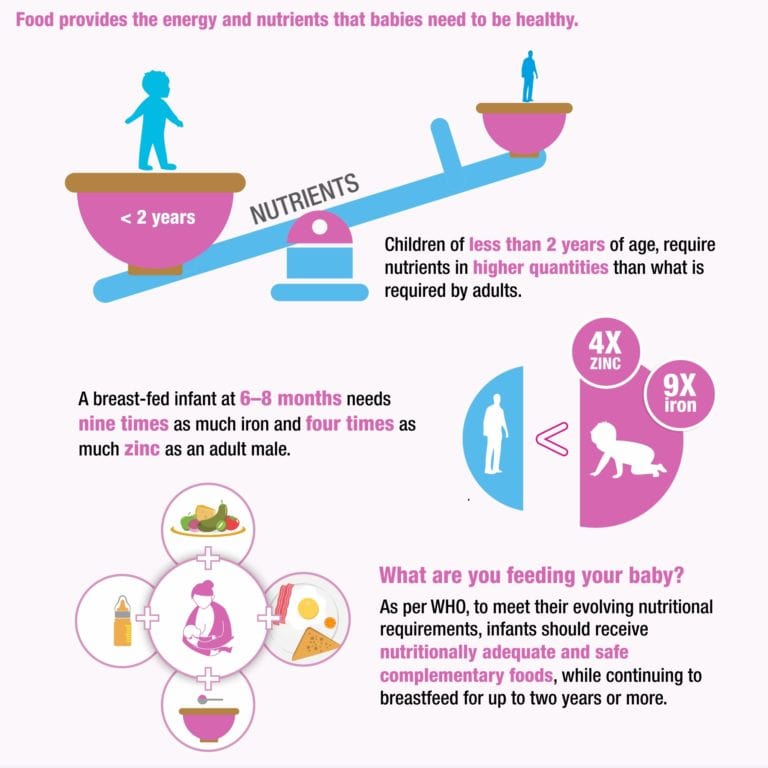 On average, a baby needs feeding every 2-3 hours.
On average, a baby needs feeding every 2-3 hours.
Frequent feeding is very important for several reasons:
- The baby's stomach is very small, the baby quickly digests breast milk. Faster than a mix. Therefore, physiologically, the child necessarily needs frequent feedings every 2-3 hours.
- Babies can sometimes sleep even when hungry, thus malnourished, which affects their development.
- After birth, the baby loses 5-10% of its body weight. And in the first weeks he needs to gain weight. Lack of milk or formula slows down this process.
- A short interval between feedings helps to maintain lactation. That allows you to avoid problems with a shortage of milk in the future.
Tears already signal strong hunger. Therefore, it is better to breastfeed the baby before the baby starts crying. Learn to recognize the early signs of hunger: the baby puts his hand in his mouth, smacks his lips, tossing and turning when he sleeps.
Should the baby be woken up to feed during the day? In general, if a baby sleeps more than 3 hours in one dream during daylight hours, he must be awakened. Then the mother can feed the already awakened baby. This makes it possible to adjust the work of the biological rhythms of the baby.
Then the mother can feed the already awakened baby. This makes it possible to adjust the work of the biological rhythms of the baby.
How to Wake Up
- Help your child gradually fall asleep by stroking his arm, leg or lightly tickling him.
- Change diaper. Often this is enough for the baby to wake up and be ready to eat.
- Undress and place skin to skin on your chest. You can squeeze a few drops of milk onto your baby's mouth. He will smell and taste it and begin to suck on the breast.
- Speak - he will hear your voice and wake up.
- Do not turn on bright lights. A dim light is sufficient. The bright light will blind your eyes.
- If the baby has attached to the breast but has not begun to suckle, stroke his cheek.
How long to feed
As soon as the baby wakes up and starts to eat, make sure that the feeding is long enough to empty at least one breast. So we will know that he ate hind milk, which is necessary for the growth of the child's body. Some babies take 45 minutes or more to feed one breast, and some do it in 10 minutes.
Some babies take 45 minutes or more to feed one breast, and some do it in 10 minutes.
The sucking reflex promotes falling asleep. Therefore, make sure that the baby does not fall asleep while feeding. If he falls asleep, change position, lift him up to burp, and then start feeding again.
By 6 months you will have a more or less predictable eating schedule. But each baby will have his own. Some of the children eat every 2 hours, and someone is able to stay without food for 3-4 hours by the second month of life. This is especially true for children who are formula fed.
The length of time between feedings increases as the child grows older. By the age of six months, many babies can already go without supplements at night or are able to sleep for longer periods.
If a child wakes up too often after 6 months and asks for food at night, perhaps this is no longer hunger, but a way to relax and fall asleep.
Avoid using a pacifier in the first weeks after delivery. The pacifier helps the child to calm down and prolong sleep. So you may not notice that your baby is hungry. Therefore, start using a pacifier no earlier than 4-6 weeks and when you are lactating.
The pacifier helps the child to calm down and prolong sleep. So you may not notice that your baby is hungry. Therefore, start using a pacifier no earlier than 4-6 weeks and when you are lactating.
Should the baby be woken up to feed formula? As with breastfeeding, the newborn needs frequent formula feeding. But the interval will be more than 3-4 hours.
When it is necessary to wake up the child
It is important to wake up the baby in the morning if he slept late after 7.00. This is especially true for children who still sleep 1-2-3 times during the day and have already developed a relatively stable routine. So you create the perfect routine in the morning.
After waking up, children need time to work up their tiredness for their next nap, the ideal window for which is around 9 and 1 pm (depending on age).
Therefore, if the baby slept until 8 am, he simply will not be able to fall asleep in his first daytime sleep.
In order for the baby to wake up calmly without tears, you can enter a wake-up ritual. It allows the child to smoothly transition from a sleepy state to wakefulness.
It allows the child to smoothly transition from a sleepy state to wakefulness.
Example of a wake-up ritual:
- Open curtains/turn on lights
- Welcome words and a kiss
- Snacks, nursery rhymes after sleep
- Happy song
Then you can get up and start breakfast. For older children, such a ritual is also necessary.
The awakening ritual has different purposes:
- Marks the end of sleep,
- Teaches a child that everyday sounds are not a reason to wake up,
- Helps prevent baby from crying when waking up.
It will also be useful to have a light alarm. If the baby wakes up early, he will stay in bed until he sees the light on the clock.
When to wake your baby up after a nap
Many babies from 4 to 8 months sleep three times a day.
In this mode, it is important to wake up the baby after the third nap no later than 17.00. The duration of this segment is about 45 minutes, but not more than an hour. Then you can easily put the baby to bed by 19 o'clock.
Then you can easily put the baby to bed by 19 o'clock.
Transition to one nap
At the age of 15-18 months there is a transition to one nap. It can be long and take place in different ways.
For example:
In the morning, the baby falls asleep easily and sleeps up to 2 hours. But then it is difficult to put it in lunch. And by the evening without rest at lunchtime, he is already overworked and falls asleep with difficulty.
So if this is your case, you can pick up the baby after 60-75 minutes. At the same time, move the start of the second sleep 15 minutes later. But if the baby sleeps for 1 hour in the morning and then it’s already difficult to fall asleep a second time, start putting him down only at lunchtime.
One nap after 2 years
Between 2.5-5 years, naps may disappear. Here again, the story described above is often repeated. It seems that the child falls asleep perfectly during the day, sleeps for a long time, but in the evening, laying down is delayed until 10-11 pm.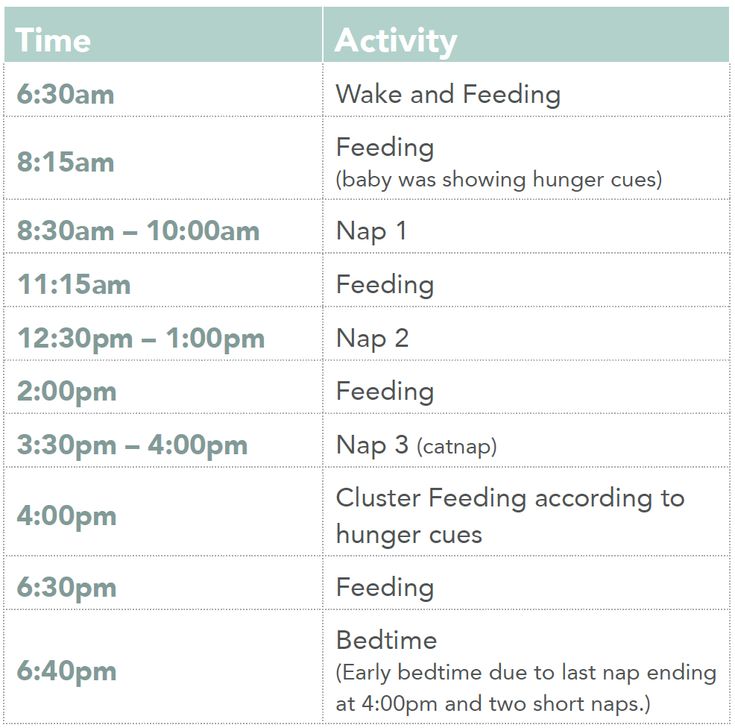 The problem is that getting up early in the morning to the garden usually does not allow you to sleep the necessary 10-11 hours per night. And again, you will have to gradually limit the duration of daytime rest. Wake your baby up after 60 minutes first, then skip the daytime so your baby sleeps better at night.
The problem is that getting up early in the morning to the garden usually does not allow you to sleep the necessary 10-11 hours per night. And again, you will have to gradually limit the duration of daytime rest. Wake your baby up after 60 minutes first, then skip the daytime so your baby sleeps better at night.
Keep an eye on your baby while doing this. If he is calm in the evening and falls asleep easily, and wakes up later than 6 o'clock in the morning in a good mood, then you are doing everything correctly.
If you notice excessive moodiness in the late afternoon or regular awakenings too early, then it is worth giving the baby more time to rest at lunchtime.
Like this article? Rate:
Votes: 91
5 occasions when you need to wake up your child day and night
- ALL
- Daily regime
- Sleep training
- daytime sleep
- Sleep regression
- Good to know about sleep
- Special situations
- Newborn sleep
May 17, 2016
Content:
- Baby needs to be awakened if he sleeps for more than 3.
 5 - 4 hours
5 - 4 hours - The child must be awakened if he has confused day and night
- The child needs to be awakened if his evening sleep is too long
When I give advice to mothers who are working on improving their baby's sleep pattern, I often see surprise in response to the recommendation to wake them up. Am I not teaching how babies can start sleeping better and longer? “Never wake a sleeping baby!”;))
However, to maintain the quality of sleep and harmonize biorhythms (and even more so in the process of correcting sleep disorders), sometimes it is necessary to wake up. Therefore, answering the question: "Is it necessary to wake the child?",
Let's look at the following situations:
this is useful in some cases. Such crumbs usually sleep a lot. Often, mothers are sure that if the baby gets hungry, they will definitely let us know. After all, the volume of the stomach of babies is small, they eat in small portions and hunger comes pretty quickly, especially if the baby is fed breast milk. However, newborns' self-regulatory systems are not well developed, so they may miss feedings.
However, newborns' self-regulatory systems are not well developed, so they may miss feedings.
And nutrition is vital, so it has an advantage over sleep. A monthly baby, depending on appetite, can be fed up to 10-12 times a day. 3-4 feedings occur at night. Mixtures are digested more slowly, so formula-fed babies eat less often. They receive food on average 8 times a day, including 1-2 times at night.
Should I wake my baby up at night to feed? At this age, babies are awakened if they sleep for more than 4 hours in a row. Any time of the day. It is very tempting to let the baby sleep in order to rest herself or do other useful things that mommy has plenty of. But by allowing this, we contribute to the fact that the baby does not receive enough calories and nutrients for development and weight gain. It's okay if this situation occurs occasionally, but you should not resort to it as a norm.
After 4 months, if you are already on a routine, you may need wake-up calls to keep it up.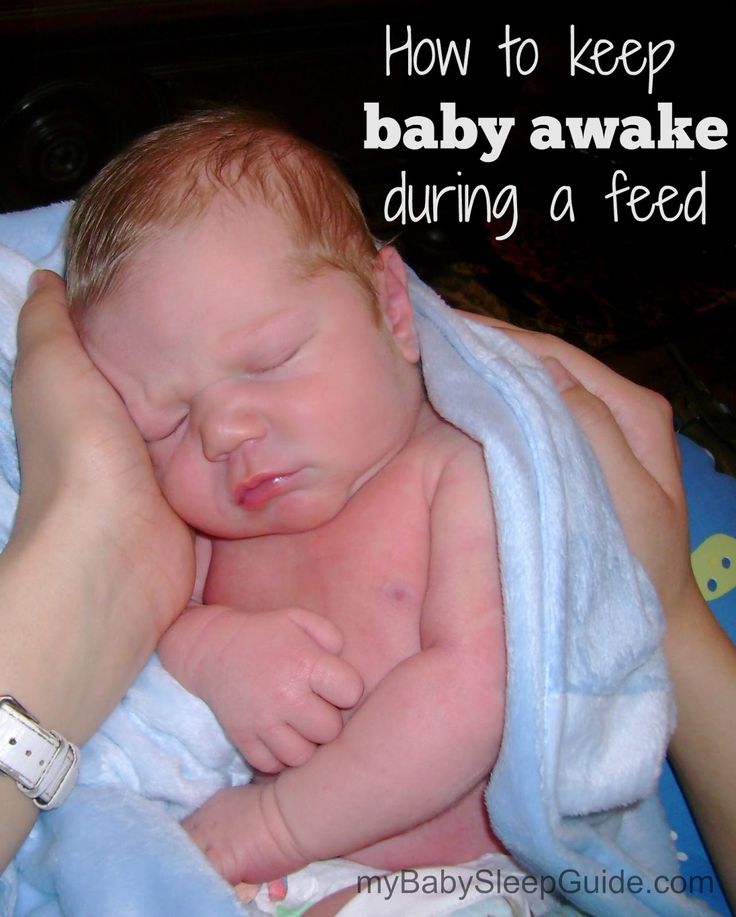 The question of whether to continue to disturb a sleeping baby for the sake of feeding, find out from your pediatrician. As a rule, if there are no problems with weight gain, the practice can be completed, and by 6 - 9 months, feeding at night can be started.
The question of whether to continue to disturb a sleeping baby for the sake of feeding, find out from your pediatrician. As a rule, if there are no problems with weight gain, the practice can be completed, and by 6 - 9 months, feeding at night can be started.
Parents of older children have another problem - the potty. Physiological readiness to control urination in healthy children appears by about three years. But some mothers start practicing potty training much earlier.
In my opinion, a night's rest should be a priority. Waking up a child at night to put him on a potty, I would not advise. First, waking up by the clock can disrupt the structure of sleep. Secondly, there is no need to rush things. The time will come, and the little one will be able to wake up on his own in response to natural urges. Until then, the problem of "floods" successfully solves the diaper.
If you are determined to get out, or your baby is of toilet training age, watch him sleep. As a rule, before urination, he begins to toss and turn, make sounds, breathing quickens. At this point, he is probably ready to wake up. And you can help him, but carefully and accurately, and after completing the procedure, put him to bed in the usual way.
As a rule, before urination, he begins to toss and turn, make sounds, breathing quickens. At this point, he is probably ready to wake up. And you can help him, but carefully and accurately, and after completing the procedure, put him to bed in the usual way.
A child needs to be awakened if he has confused day and night
Sometimes it takes a few weeks for children to get their bearings in the rhythms of the outside world. It is especially difficult for them to do this, at 2-4 months. life, when their internal biorhythms are still not mature, and the ability to establish cause-and-effect relationships has already appeared. In a world filled with artificial light sources, it's not only children who find it difficult to know when it's time to sleep.
Therefore, to the question "Should the child wake up during the day?" in such a situation, the answer is yes. By not allowing the baby to sleep too much during the day, we adjust the amount of daytime sleep to keep the night. But be careful, do not force the baby to be unnecessarily awake: keep time intervals between sleeps suitable for his age.
But be careful, do not force the baby to be unnecessarily awake: keep time intervals between sleeps suitable for his age.
The baby should be awakened no later than 7:00 am in the morning.
We think that starting the day late helps the child (or us) get enough sleep. However, getting up late leads to inconsistency in our biorhythms. We sleep when we should be awake, and then we are awake when we should be sleeping. Thus, the body is not able to fully rest. He is awake "for wear and tear", constantly being in a state of stress. This situation leads to the accumulation of the hormone of vigor, cortisol, which accompanies stress, and to excessive fatigue.
A steady awakening around 7 am sets the pace for the whole day. This is what you need to strive for if you want to establish a crumbs sleep pattern. However, you can’t immediately start getting up at 7 if the little one is used to sleeping in the morning until 9-10. Changes must be introduced smoothly, shifting the rise time to an earlier daily, no more than 30 minutes.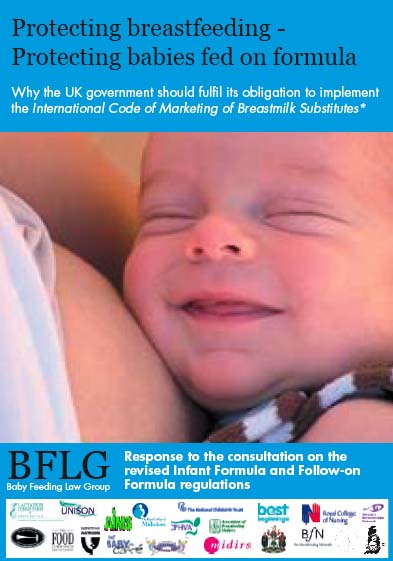
It is important to control the duration of rest, if a long daytime sleep leads to the cancellation of the next one, delays the process of going to bed if there are night awakenings or an early rise.
As a child grows, their sleep needs decrease. Most often, control of the duration of dreams during the day is necessary when there is a reduction in their number, a transition to 2-1-no sleep.
Daytime naps continue to have a beneficial effect on the development of the baby, his mood, physical and cognitive abilities right up to primary school age. Therefore, our important task is to try to keep the quiet hour as long as possible. At this moment, it is important to properly distribute the rest during the day, so that on the one hand, not to let the baby overwork, and on the other hand, to ensure a continuous and long night's sleep.
Everything has to happen on time. If the first nap is too long, it will affect the timing of the next one. It will move, and the whole regime will "float". When a child sleeps during the day at the wrong time, the rest is of less quality. If we have 3 naps, the first should end no later than 11 am, so that the second one should start no later than 2 pm. The third dream is optimally completed by 17:00 to ensure early departure at night, between 18:00-20:00. In addition, each episode of sleep should last at least an hour (less is acceptable for the third).
It will move, and the whole regime will "float". When a child sleeps during the day at the wrong time, the rest is of less quality. If we have 3 naps, the first should end no later than 11 am, so that the second one should start no later than 2 pm. The third dream is optimally completed by 17:00 to ensure early departure at night, between 18:00-20:00. In addition, each episode of sleep should last at least an hour (less is acceptable for the third).
Based on this data and individual wakefulness, you can calculate the maximum duration of each quiet hour. If it is exceeded, it is worth waking up the dormouse.
The child needs to be awakened if his evening sleep is too long. Evening sleep for more than 1 hour can delay the onset of high-quality night sleep (sleep before 0:00 is the deepest and most restorative) and lead to its lack, accumulation of fatigue, which in turn will contribute to an earlier rise in the morning.
Pick up the baby no later than 17:00 if the evening sleep is prolonged. So, you guarantee timely care at night.
So, you guarantee timely care at night.
In all these cases, it is important not only to wake up the baby on time, but also to do it correctly. Awakening should not be abrupt. It is good if the process of getting up is a ritual similar to what we use when we go to bed:
- Open the door to the room, and walk past so that the incoming sound gently wakes you up;
- Pull back the curtains and let the natural light do the work;
- Open the window a little, for older children, open the blanket a little. Lowering the temperature in the room will help you wake up;
- Stroke the baby on the back, gently call him.
Waking up the baby sometimes takes up to 15 minutes. Take this into account when planning the time of the rise, so as not to spend it in a hurry.
If the baby wakes up reluctantly or is naughty, calm him down, but do not let him fall asleep again.
When you decide to wake your child, analyze his behavior during the day.




